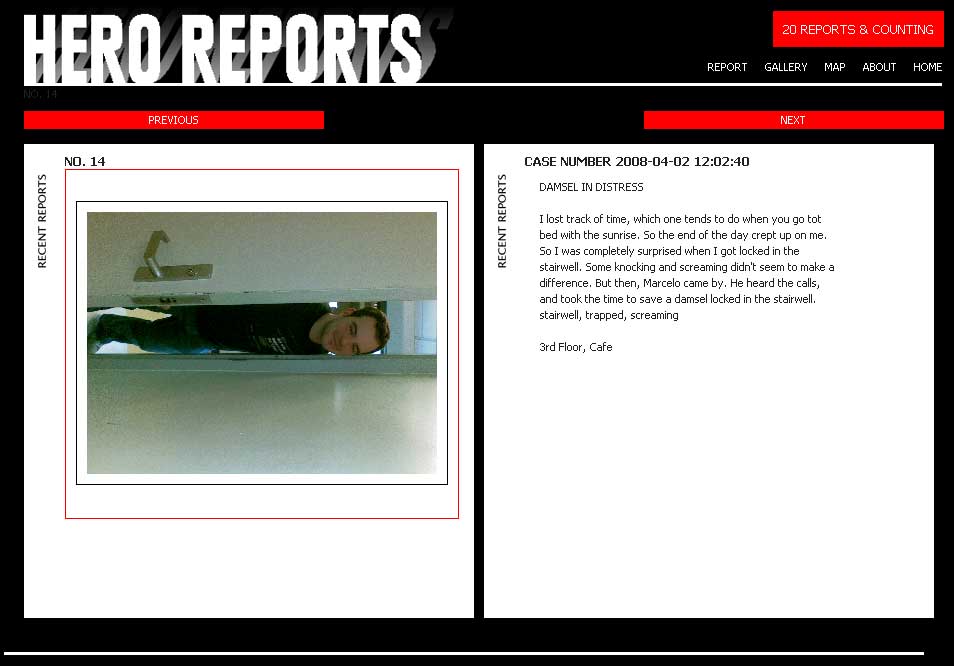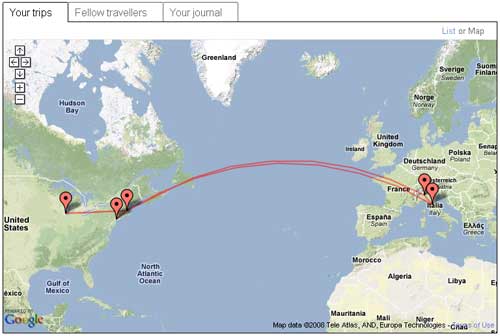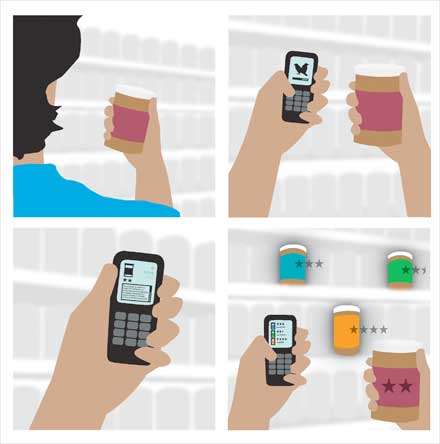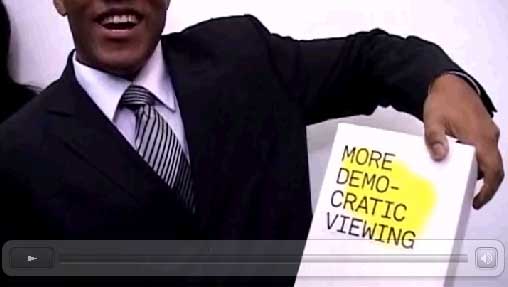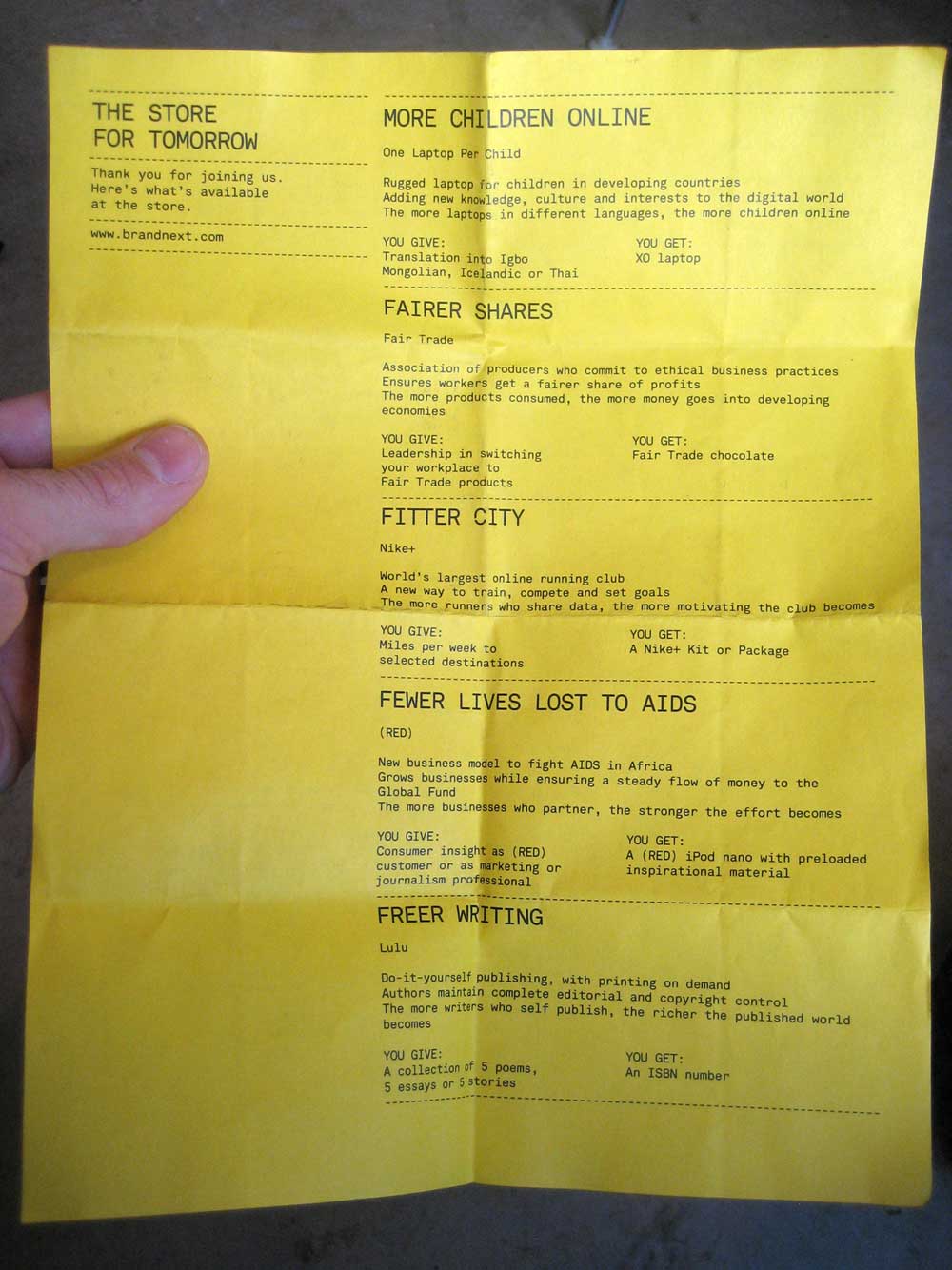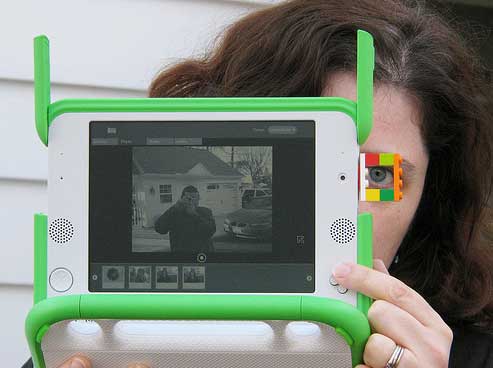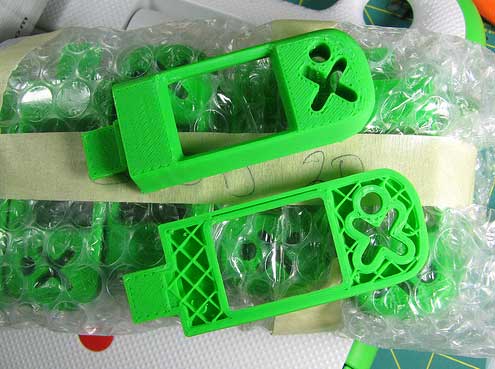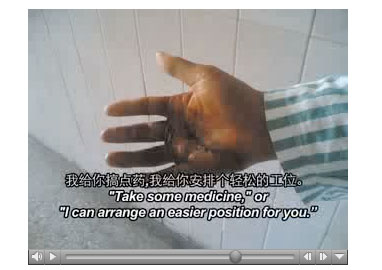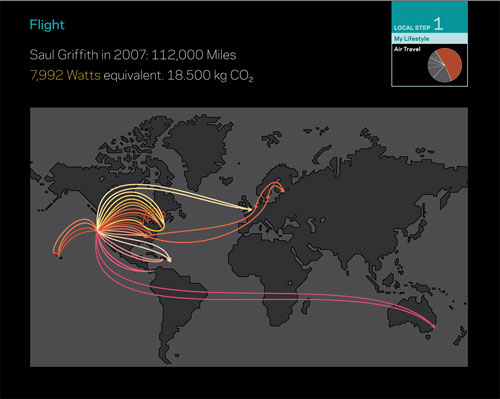
Saul Griffith has made available his notes and slides for a powerpoint entitled ‘The Game Plan‘ detailing the necessary steps to be taken as individuals and society to reverse climate change. He begins with a logical framework (including an introduction to energy measurement) to talk about climate change based on the temperature increase we are willing to accept, then he proposes personal steps that can be taken. This part was the most provocative for me: he details his own personal footprint and the changes he is implementing to live a ‘2,000 Watt’ life. He thens continues with an evaluation of solutions, detailing the relative potential impact of various energy strategies. I recommend reading it, and if you’re in a position to, giving the talk as well.
